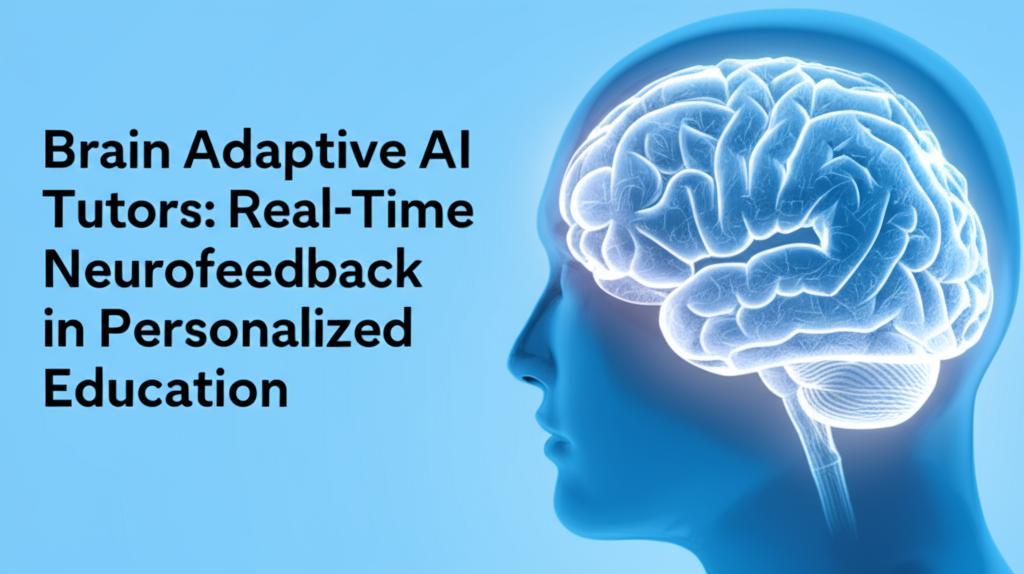The Dawn of Hyper-Personalized Learning: AI Tutors That Read Your Mind
Imagine an educational experience so attuned to your cognitive state that it feels like the tutor is reading your mind. This isn't science fiction; it's the rapidly evolving reality of Brain-Adaptive AI Tutors, a revolutionary approach poised to transform personalized education. By integrating real-time neurofeedback, these AI-powered systems are moving beyond traditional adaptive learning to create truly dynamic and individualized educational journeys.
At its core, this technology leverages advancements in brain-computer interfaces (BCIs), artificial intelligence (AI), and cognitive neuroscience. These sophisticated AI tutors can monitor a student's cognitive and emotional states – such as attention levels, cognitive workload, and even frustration or engagement – often using non-invasive sensors like EEG. This real-time data then allows the AI to instantly adjust its teaching strategies, content complexity, and pacing to match the learner's specific needs at that very moment.
The potential benefits are immense. By tailoring the learning experience to the individual's brain activity, these AI tutors can optimize engagement, reduce cognitive overload, and significantly enhance knowledge retention. Studies are already indicating that AI-driven feedback and adaptive instruction can, in some instances, even outperform traditional expert instruction. Imagine an AI tutor that detects when a student's attention is waning and responsively introduces a more engaging activity or a different explanatory approach. Or a system that recognizes a student is becoming overwhelmed and simplifies the material or offers a timely break. This level of responsiveness can make learning more efficient, effective, and ultimately, more enjoyable.
Gamification is another powerful element being integrated into these systems, making learning more interactive and motivating. When combined with immersive technologies like Virtual and Augmented Reality (VR/AR), the potential for creating deeply engaging and effective learning environments expands even further. These technologies can provide multisensory experiences that align with how the brain naturally processes information.
While the promise is exciting, the field also faces challenges. High implementation costs, data privacy concerns regarding sensitive neurological information, and the potential for algorithmic bias are critical hurdles that need careful consideration and ethical frameworks. Ensuring equitable access to these advanced technologies is also a key concern to prevent a widening of the educational divide.
Despite these challenges, the trajectory is clear. The fusion of AI and neuroscience is paving the way for a new era of "neuro-learning" where educational strategies are deeply informed by our understanding of the brain. As AI algorithms become more sophisticated and neurofeedback technology more accessible, brain-adaptive AI tutors are set to play an increasingly significant role in creating highly responsive, learner-centric educational ecosystems. This isn't just about smarter tutors; it's about unlocking human potential by understanding and adapting to the unique way each individual learns. The classroom of the future might just be inside your head.

